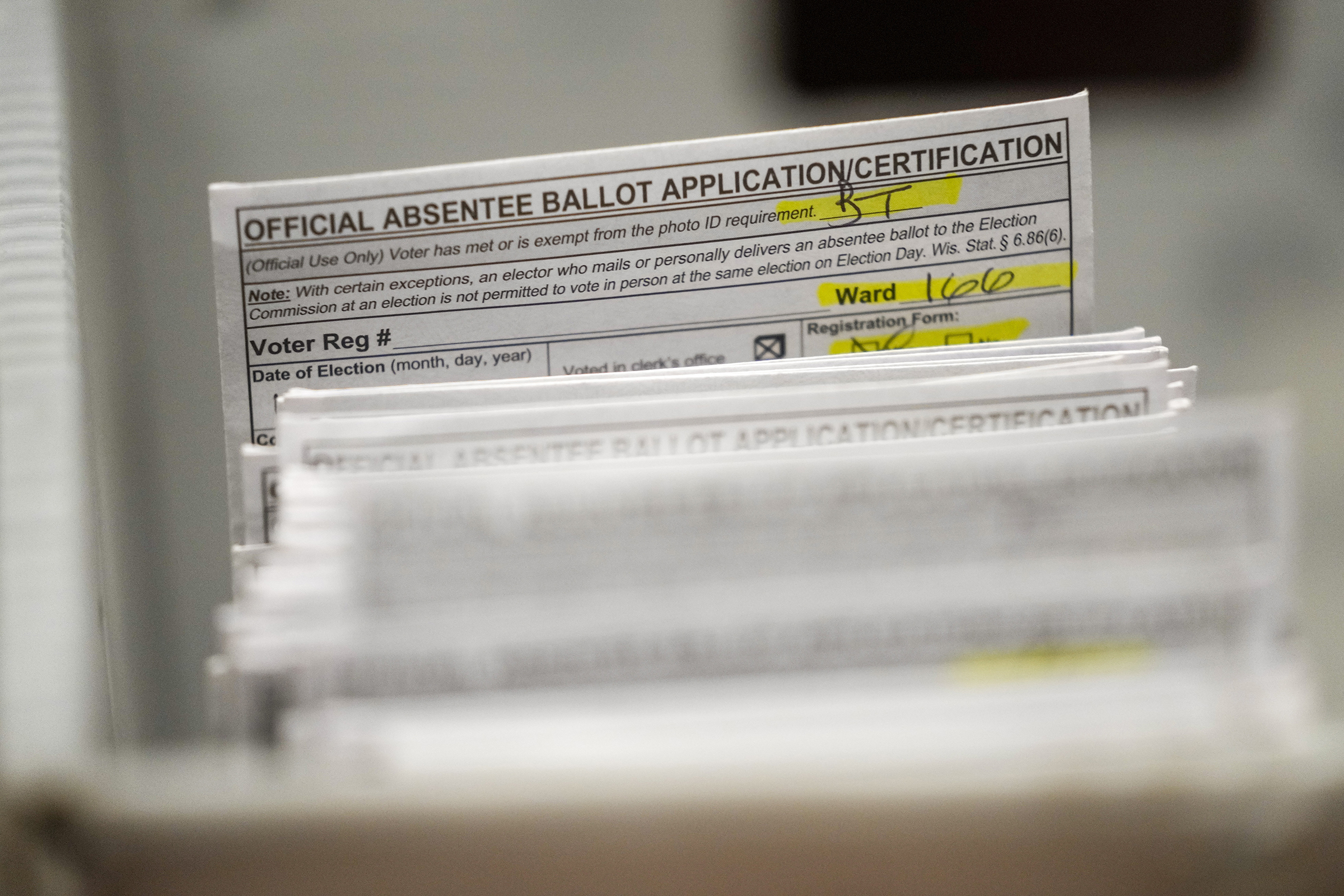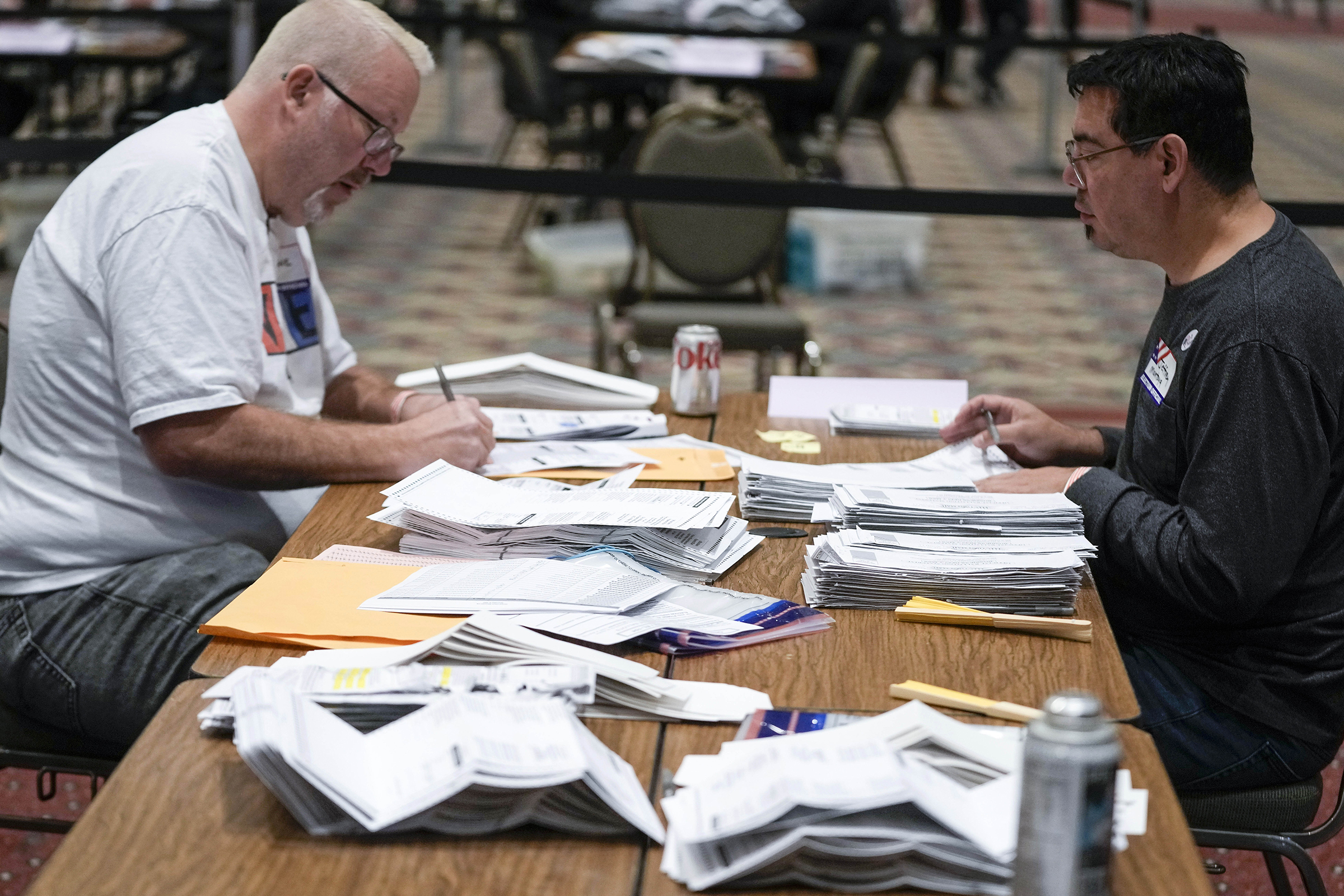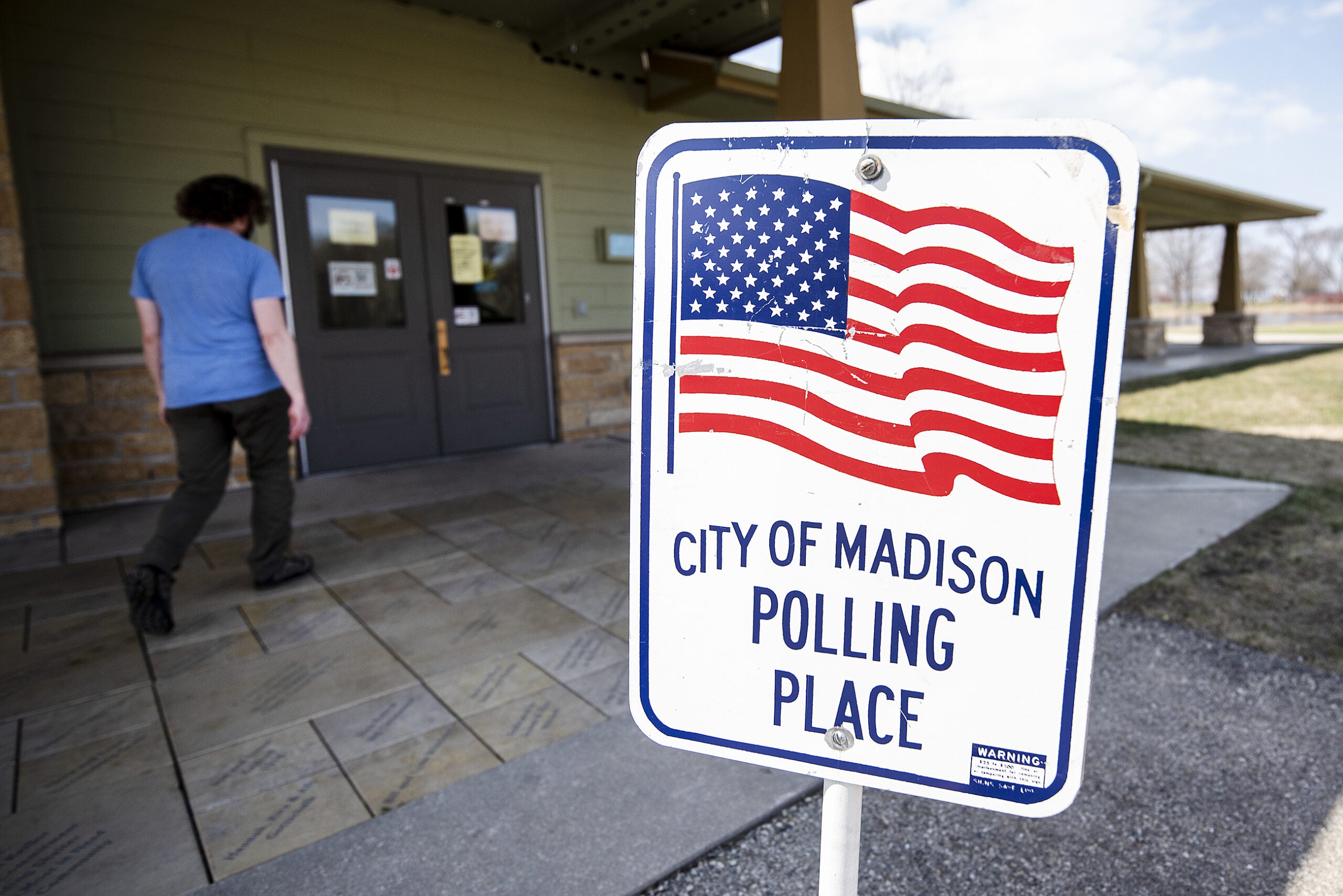Some Wisconsin clerks say changes to absentee ballot envelopes will help voters better understand the process for making sure their votes are counted.
The Wisconsin Elections Commission, or WEC, voted unanimously last week to redesign envelopes containing completed absentee ballots. The changes were due to feedback from 250 people, including clerks and voters, in 11 different communities around the state.
Beginning with the 2024 spring primary, there will be step-by-step instructions detailing how to fill out the envelopes. There will be an alert icon — an exclamation point inside a triangle — to remind people what witness information needs to be included on the envelope. WEC spokesperson John Smalle said this is the most significant change.
News with a little more humanity
WPR’s “Wisconsin Today” newsletter keeps you connected to the state you love without feeling overwhelmed. No paywall. No agenda. No corporate filter.
Claire Woodall-Vogg, the municipal clerk for the city of Milwaukee, agrees. She said the most frequent mistake she sees in her office is envelopes missing the address of witnesses. This is a trend statewide. She believes the alert icon will make a difference.
“The envelope is made to be more user-friendly, less legalese,” Woodall-Vogg said. “Your eye is drawn to where there needs to be action.”
The new design also specifies that envelopes will be color coded depending on the type of voter. For example, domestic and international absentee voters will have different-colored strips on the back of their envelopes. Smalle said this will help clerks and postal workers keep track of ballots.
Wisconsin is joining 18 states that already use this color-coding system.
The changes come after some absentee voters did not submit legal ballots in recent elections. During the 2020 presidential election, the Legislative Audit Bureau sampled 14,710 envelopes containing filled-out ballots, and 1,022 of them, or 7 percent, couldn’t be counted because the witness section of the envelope was filled out incorrectly. The new envelopes are meant to decrease the number of mistakes.
“We’re hoping that this will highlight for the witness to slow down and that they sign, they print their name, and then to print their address,” Woodall-Vogg said.
Kaitlyn Bernarde, the municipal clerk for the city of Wausau, thinks the new envelopes will be effective. As absentee voting becomes more popular, she wants to make sure it’s done correctly.
“We are doing our due diligence on the front end to make sure that every eligible ballot can be counted on election day,” Bernarde said.
Clerks are encouraged, but not required, to tell voters when there are errors on their envelope so the voter has a chance to correct it. In 2016, the Wisconsin Legislature passed a law saying if the envelope was missing the address of a witness, it could still be counted. But in October 2022, a judge ruled that clerks are not allowed to correct missing or incorrect information on an envelope and therefore that vote cannot be counted.
The redesigned envelopes also bring uniformity across municipalities.
“Our previous envelopes, they had lots of block texts that sometimes local municipalities would highlight different things to make it stand out, but it could be kind of confusing,” Bernarde said.
Smalle noted that the changes only pertain to the envelopes.
“The ballot is a different animal entirely,” he said.
The WEC allocated $600,000 in federal funds to help municipalities offset the cost of printing new envelopes. The size of the grants depends on the size of the municipality. The application is still open.
“Every single person who wants to vote, we want to make sure that their vote counts,” Woodall-Vogg said.
Wisconsin Public Radio, © Copyright 2025, Board of Regents of the University of Wisconsin System and Wisconsin Educational Communications Board.







